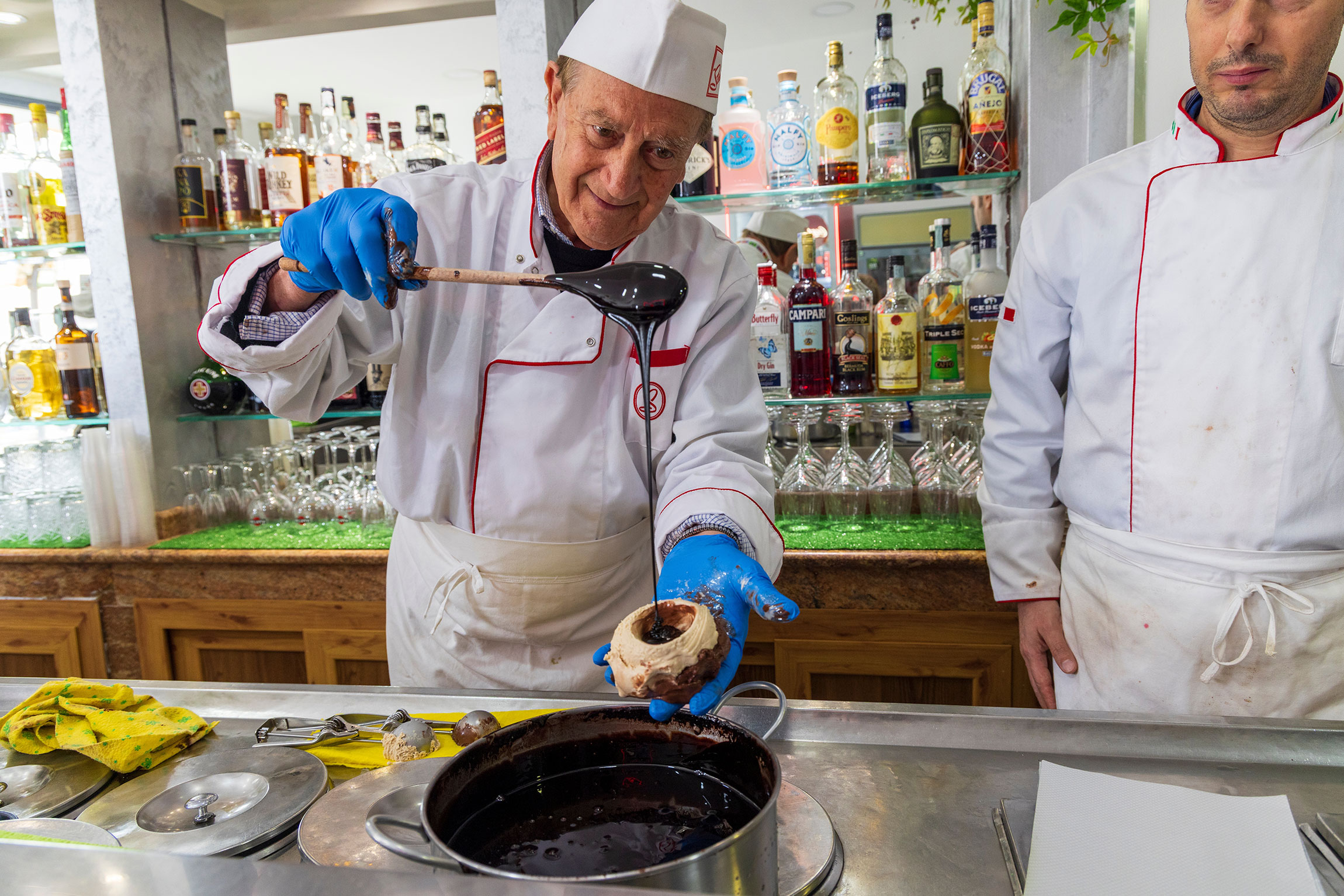Every time we talk about young Italian scientists moving to the USA to continue their research, the discussion shifts to what’s wrong in Italy and the causes of the “brain drain.” It’s undoubtedly a significant aspect, but does it really make sense to give geographical boundaries to science and technological progress?
Giving an absolute answer is not simple, and we must keep it in mind. Research often thrives on experiences and opportunities, encounters, and coincidences. Sometimes, one leaves to engage with new research methods but returns home shortly after; other times, one stays forever in the host country because its laboratories and institutes operate with organizational criteria or human resources more suitable for one’s experiments. At times, going back and forth, keeping a suitcase always in hand, becomes a natural part of a researcher’s life and represents the best solution for the continuation of scientific initiatives.
In the end, Italian scientists who choose America to study and work follow the “very personal” dynamics of those who emigrate: some go to the USA and never return, some come back immediately, some go back and forth, and some find, within the Italian-American community, an optimal dimension to remain suspended between two worlds.
To understand who the Italian researchers in the United States are today, a study promoted by the Italian Embassy in Washington, the consular diplomatic network, Comites, and Issnaf is underway. The “Speciale USA” questionnaire was born in collaboration with the Ministry of Foreign Affairs and International Cooperation and the Institute for Research on Population and Social Policies(Irpps) of the National Research Council. It represents a focus on the United States but is integral part of a broader project aimed at all Italian researchers abroad, launched by Irpps and the ministry in November 2021. Its purpose is to understand Italian researchers’ views on research opportunities in Italy and the initiatives that our country put in place to facilitate researchers’ mobility.
A series of questions asked to evaluate one’s international experience for the development of science, to tell if the idea of returning to Italy has ever been considered, what would motivate a possible return home, and what factors or incentives would make one consider the idea of repatriating and be a researcher in Italy.
While we wait for results, which are expected by the end of the year, it is clear that – beyond numbers, statistical elaborations, and quantitative analyses – this study aims to assess the current situation and identify trends. Data from AIRE, the registry of Italian residents abroad, show that the exodus towards the more dynamic labor and research market in America continues, and that the USA remains one of the most coveted and sought-after destinations for those deciding to pursue a career abroad. However, what can effectively retain our “brains” or convince them to return remains to be understood. It is equally true that a country that invests more in research is stronger and better prepared for the challenges of the future.
For the moment, this great flight abroad of young minds, and especially the fact they fit well into the American research and development context, says at least one thing: that our researchers are well prepared. This means that Italian universities work well, and there is no need to rely on academic rankings to understand it: the proof lies in the fact that, if more and more Italian scientists stay to work in the USA, then their training and education are more than up to the challenge.
Clearly, we have to say and accept that these brilliant young minds are not encouraged to stay by a national system unable to adequately value their talent, nor willing to pay well or offer rewarding jobs and laboratories for their research. In other words, our system cannot provide our researchers with what they need to keep up with international demands and does not ensure long-term prospects, which is a problem, because reaching scientifically relevant outcomes often requires a lot of time, with little to show in the meantime.
However, knowing that American multinationals are increasingly recruiting in Italy demonstrates we only need to believe in it more, because all we need to succeed is already right here.
Tutte le volte che si parla di giovani scienziati italiani che si trasferiscono negli Usa per proseguire le ricerche, l’argomento della discussione si sposta su quello che non va in Italia e sulle cause della “fuga dei cervelli”. E’ sicuramente un aspetto non trascurabile ma ha davvero senso dare confini geografici alla scienza e ai progressi tecnologici?
Posto che non è facile dare una risposta assoluta, la ricerca spesso si nutre di esperienze e occasioni, di incontri e casualità. Talvolta si parte per confrontarsi con metodi nuovi di indagine ma si torna a casa poco dopo, altre volte si resta per sempre nel Paese ospite perché i suoi laboratori e istituti funzionano con criteri organizzativi o risorse umane più congeniali ai propri esperimenti, altre volte un’altalena di viaggi, avanti e indietro con la valigia sempre in mano, costellano la vita del ricercatore e rappresentano la migliore soluzione per il proseguo delle iniziative scientifiche.
Come dire che gli scienziati italiani che scelgono l’America per studiare e lavorare seguono un po’ le dinamiche “molto personali” di chi emigra: c’è chi va in Usa e non torna più, c’è chi rientra subito, chi fa avanti e indietro e chi dentro il gruppo degli italoamericani trova la dimensione ottimale per restare sospeso tra due mondi.
Per capire chi sono oggi i ricercatori italiani negli Stati Uniti è in corso uno studio promosso anche dall’Ambasciata italiana a Washington, dalla rete diplomatica consolare e dei Comites e da Issnaf. Il questionario “Speciale Usa” è nato dalla collaborazione con il ministero degli Affari Esteri e della Cooperazione Internazionale e con l’Istituto di Ricerche sulla Popolazione e Politiche Sociali (Irpps) del Consiglio Nazionale delle Ricerche. Rappresenta un approfondimento dedicato agli Stati Uniti che è parte integrante del più ampio progetto rivolto a tutti i ricercatori italiani all’estero lanciato da Irpps e ministero nel novembre 2021. Lo scopo dell’indagine è conoscere la visione dei ricercatori italiani sulle opportunità di ricerca in Italia e sulle iniziative che il nostro Paese ha attivato per favorire la circolazione dei ricercatori.
Una serie di domande ha chiesto di giudicare la propria esperienza internazionale per lo sviluppo della scienza, di raccontare se si è mai presa in considerazione l’idea di rientrare in Italia, cosa motiverebbe un possibile ritorno a casa e quali fattori o incentivi farebbero considerare l’idea di rimpatriare per svolgere attività di ricerca in Italia.
In attesa del responso in calendario a fine anno, è chiaro che al di là di numeri, elaborazioni statistiche e analisi quantitative si vuole avere il polso della situazione, intercettare le tendenze. Se i dati dell’Aire, l’anagrafe dei residenti all’estero, dimostrano che continua l’esodo degli italiani verso il più dinamico mercato del lavoro e della ricerca americano e gli Usa rappresentano sempre una delle mete privilegiate e più ambite per chi vuole lasciare il Belpaese per fare carriera all’estero, resta da capire cosa possa efficacemente trattenere i cervelli o convincerli a rientrare, se è altrettanto vero che un Paese che investe di più in ricerca è più forte e si prepara meglio alle sfide di un futuro che richiede tempi di trasformazione sempre più veloci.
Al momento, la grande fuga all’estero dei ricercatori e soprattutto il fatto che restano a lavorare fuori e si inseriscono bene nei contesti di ricerca e sviluppo a stelle e strisce, dice almeno una cosa con chiarezza. La preparazione che questi ricercatori hanno è di alto livello. Tradotto: le università italiane funzionano bene e non serve affidarsi ai ranking reputazionali che periodicamente ne fanno la classifica perché la valutazione, la promozione del sistema academico italiano, sta nei fatti ovvero nella certezza che se sempre più scienziati italiani lavorano negli Usa vuol dire che la loro formazione è più che all’altezza della sfida.
Poi possiamo certamente dire che questi giovani non sono incoraggiati da un sistema nazionale che non è in grado di valorizzare adeguatamente i talenti che forma per oltre due decenni, né di pagare bene la loro ricerca, di offrire posti di lavoro gratificanti e laboratori che sappiano tenere il passo con le esigenze della ricerca, di assicurare prospettive e orizzonti lunghi perché spesso giungere a esiti scientificamente rilevanti richiede molto tempo e pochi risultati a breve termine.
Tuttavia, sapere che aumentano le multinazionali americane che reclutano talenti in Italia, fa capire che bisogna solo crederci di più perché le qualità già le abbiamo in casa.
































